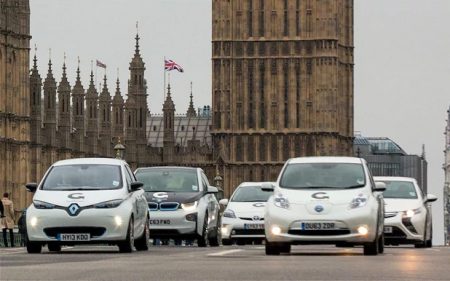Following the release of the Commons’ Business, Energy and Industrial Strategy Committee (BEIS) report into the future of electric vehicles published today, a number of interested parties have responded.
On the whole, the response has been positive, with the main criticism being that the government needs to be doing a lot more now to boost the roll-out of charging points. One dissenting voice comes from SMMT.
Mike Hawes, SMMT Chief Executive:
“Government’s 2040 ambition was already extremely challenging, so to fast-track that by eight years would be nigh on impossible. We said we need world class infrastructure and world class incentives to have any chance of delivering so the recent cuts to the Plug-in Car Grant and lack of charging facilities – both of which are severely criticised by the Committee – show just how difficult it would be to accelerate this transition.
“Zero emission vehicles make up just 0.6% of the market meaning consumer appetite would have to grow by some 17,000% in just over a decade. This is unrealistic and rejects the evidence put forward by SMMT on behalf of the industry, which is investing billions into these technologies but which recognises consumers need greater confidence and support if they are to buy these vehicles in the numbers we all want.”
David Martell, Chief Executive of BP Chargemaster, said:
“We welcomed the invitation from the BEIS committee to present evidence to its enquiry and we are pleased to see many of our concerns are addressed in its findings.
“The largest factor limiting the growth of the UK EV market today is the number of electric cars physically available. There is probably sufficient demand for around 100,000 new EV registrations in 2018, but that number is likely to be around 60,000 due to supply constraints.
“In terms of charging infrastructure, while the committee endorses the provisions in the Automated and Electric Vehicle Act 2018 to ‘ensure interoperability’, it ignores the fact that this ease of access already exists thanks to the Alternative Fuels Infrastructure Regulations 2017, which mandate ‘ad hoc’, pay-as-you-go access to all public charging points – so the aim of interoperability has already been achieved with existing legislation.
“The committee’s finding that EV charging infrastructure is ‘not fit for purpose’ does not correlate with the overall customer experience and appears to be based on outdated information, and figures relating only to publicly-funded charging points, ignoring the fact that the majority of new infrastructure is being privately-funded. BP Chargemaster will continue to expand its affordable, reliable and convenient charging network over the coming years, to make driving an EV as easy as possible.”
BVRLA Chief Executive Gerry Keaney said:
“The Government’s electric vehicle strategy needs to move from one based on visions to one based on actions. If India, China and Scotland feel able to set a target of banning new petrol and diesel cars and vans by 2032, then the UK should be brave enough to meet that challenge as well…”
Read more: Fleet Point

